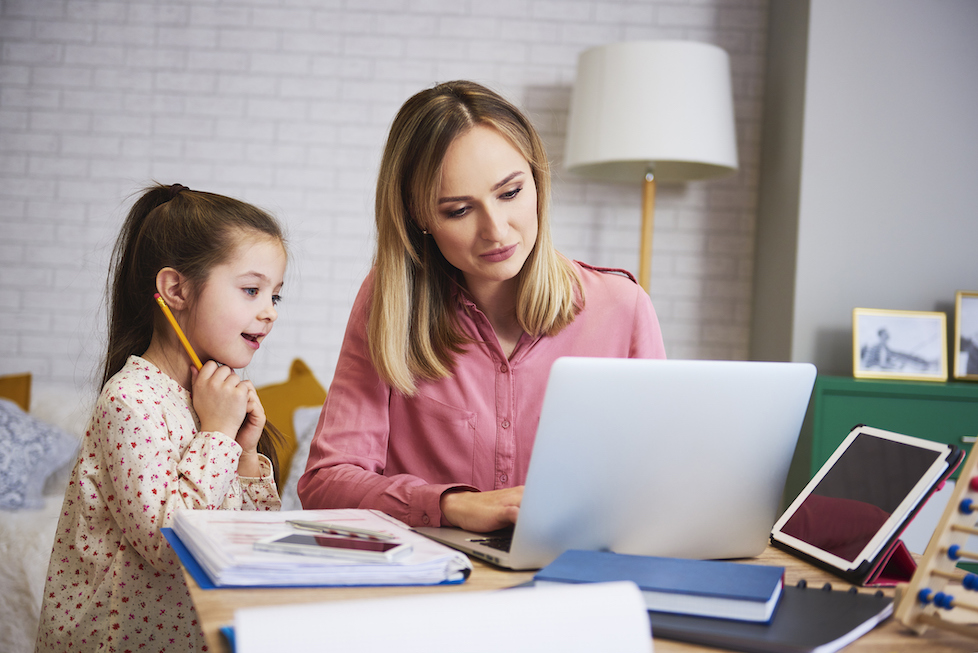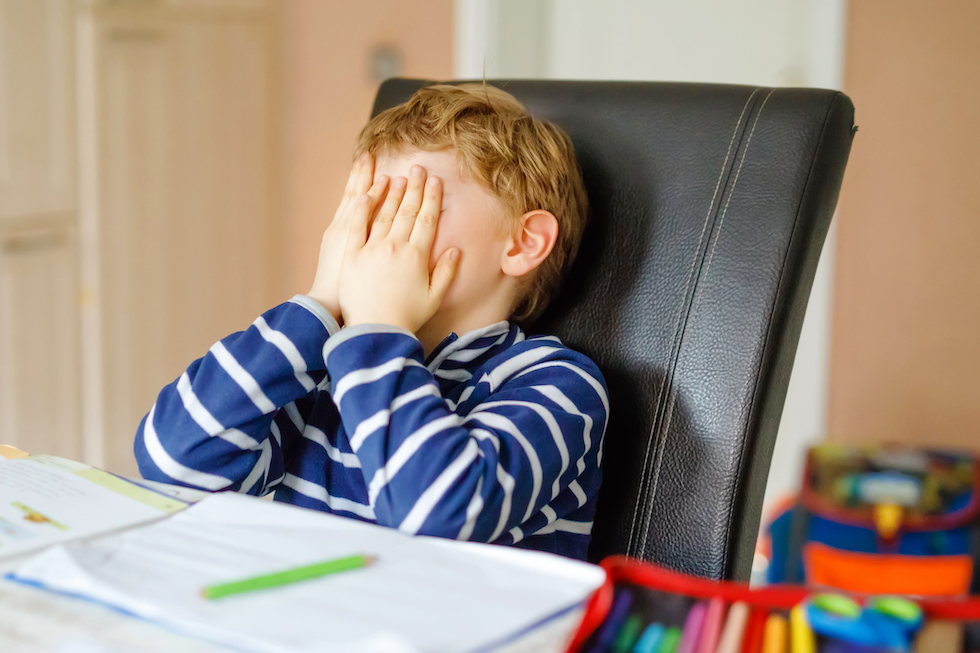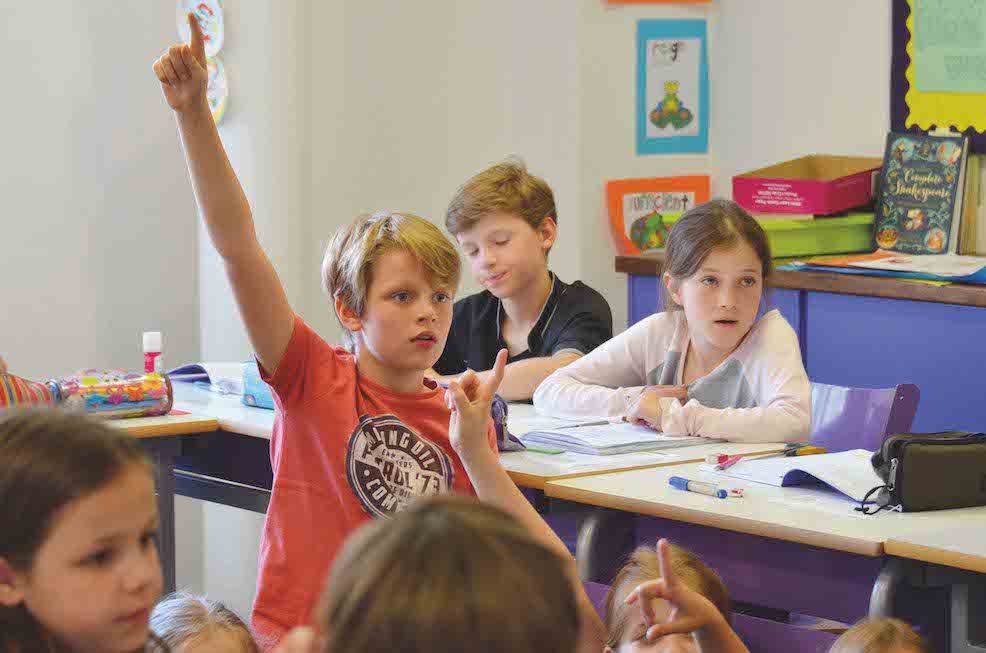How to home school during coronavirus
By School House
6 years ago

Parenting in the time of coronavirus, by Alex Bloom-Davis
‘We see the light in our children’s eyes when they see their teachers on a video call, and they’re just glued to the screen because they have that moment. When they have that one on one with their teacher, even if it is just for ten minutes, it is so crucial to them, and you realise the influence the teachers have on them. That makes a huge difference.’

Although social distancing-imposed quarantine has wormed its way into our lives and become accepted as we adjust our routines to accommodate this necessary, but equally unwelcome, way of living, the novelty of it has far from worn off. Considering we have been living in this limbo for a month now, there are still aspects of it that surprise us and require us to solve the new problems they present on a daily basis. One of the greatest challenges the coronavirus pandemic has thrown at us came when the UK schools were closed and parents were forced to become supply teachers without any notice, many of whom have to carry out this task in tandem with other jobs and duties they might have, asking how to home school during coronavirus?
It must not be overlooked how magnificently our country’s schools have risen to the challenge and have continued to provide the best education for their charges. However, while classes are now taught remotely, it is the parents who must oversee pupils’ schoolwork on a day to day basis and ensure they home school during coronavirus.
School House spoke to EIFA – a French-English bilingual school in Marylebone, London, for pupils aged 21 months to 18 years – to find out how parents are coping with home school during coronavirus.

To start with a blindingly obvious statement, parents and pupils are adjusting to this new arrangement at the same time. ‘Parents have to now be teachers as well,’ Françoise Zurbach, Headmistress at EIFA, tells me, ‘and it is taking a lot of their time.’ Indeed, Calia Brencsons-Van Dyk, President of EIFA parent’s association, explains some of the added pressure that home school during coronavirus has presented. As a business owner, Ms Brencsons-Van Dyk is acutely aware of the global economic strife caused by the coronavirus: ‘We are still having to roll with these economic punches while becoming full time educators,’ she says, ‘and frankly, we do not have the skillset trained educators have.’ Lack of experience then, combined with managing trying times in one’s career, are the immediate problems parents are faced with solving.
Ms Brencsons-Van Dyk has found a change of perception useful to help manage her expectations of working from home, while maintaining her son’s school schedule. She tells me how in the first week of social distancing if her son wandered into shot during one of her Zoom business meetings, she thought it was the worst possible thing; but after reflecting on this, she realised nothing detrimental to her meetings were occurring and a weight was lifted off her shoulders. ‘Children are now co-workers,’ Ms Brencsons-Van Dyk explains. ‘If a child wanders into a meeting at home you have to realise this is ok. They are my co-workers; they live here, and they work here.’
The harmony required between working parent and child goes beyond shared working and living spaces though. Parent’s daily routines must be altered to comply with the expectations of a young child, but critically, to also maintain a child’s sense of being a school pupil, even when at home. While EIFA have found their older pupils to be more autonomous, sticking to a schedule similar to that of school anyway, more thought has had to go into the younger pupil’s daily routine; small things like mealtimes, for example. When a school serves lunch at noon, a child expects lunch at noon. Therefore, come 12:00 each day, Ms Brencsons-Van Dyk now finds herself having lunch, because that is what happens at school. ‘We are integrating ourselves into the school day and it has been a wonderful eye opener,’ she says. Waking up and going to bed at the same time each day are equally important, as are exercise and mirroring some of the school’s study routines. Keeping a routine akin to that of a school day ‘gives a sense of continuity’, as Ms Brencsons-Van Dyk reminds me, ‘even though we are social distancing and staying at home, a routine for a child provides a sense of safety and order in their world’, something which can’t be overstated in uncertain and sometimes frightening times.

Beyond adjusting to this alien way of living at home, flexibility is something else to consider carefully – after all, everyone knows what happens when you don’t bend. In a bid to reassure struggling parents, Mme Zurbach has prepared a letter to all EIFA parents, explaining the importance of relaxing expectations for their children during this time. ‘We are putting the offers to work out there,’ she says, ‘but say there is a beautiful sunny day; your children should go out, if they can, and enjoy it. Go out, get a bit of sun and return to doing the set work a bit later. It is important for people to feel more relaxed.’
This assurance from Mme Zurbach was a welcome relief to EIFA’s parents, as Ms Brencsons-Van Dyk tells me how difficult it is for parents not to be hard on themselves: ‘I think it took us two weeks to realise if our child didn’t do every single work sheet they weren’t going to fail for the rest of their lives.’ Parents with no education training had to adapt to mentoring their own children and making sure they completed the work set by their teachers. There was a tendency, Ms Brencsons-Van Dyk continues, to think if a child failed to complete a piece of work they were set by their teachers, this would be a reflection of the parents – namely, that they too had failed.

The fear of being perceived as a failure extended to the other side of the table, as even EIFA’s teaching staff were putting an enormous amount of pressure on themselves to succeed, setting lots of work (although not more than was required) in an effort to prove they were still working, despite the school being closed. Mme Zurbach explains her teaching body were setting so much work because there was a thought among the staff that if they didn’t then they would not cover everything they needed to.
The result of parents and teachers effectively trying to prove themselves to each other was that the pupils were the ones who had the bulk of the pressure exerted on them. ‘We had to tone that sense of failure down,’ Ms Brencsons-Van Dyk recalls, going on to say, ‘we are all in this boat together and it is a global problem. Our kids are going to get to college, it is all going to be fine and our child is not going to be a social drop out because they didn’t do one work sheet.’ Now, EIFA’s parents and staff understand that teaching can not continue at the same rate as it was when conducted in the classroom, and things have started to even out. Home school during coronavirus has led us to realise what is achievable in these circumstances has been reconsidered and made far more realistic.
Something the parents at EIFA have found especially useful is the open-door policy between parents and staff. This is really more of a school philosophy than a policy and was in place long before coronavirus hit the world – ‘every day is an open door at EIFA’ is something of a school motto. The way parents and staff are highly connected has been invaluable, and as President of EIFA parent’s association, Ms Brencsons-Van Dyk reveals that she is able to talk to the headmistress, Mme Zurbach on a weekly basis, something Ms Brencsons-Van Dyk admits is rare quality for a school head. Parents are able to relay their concerns to Ms Brencsons-Van Dyk – each class at EIFA has a parent rep who has connected the other class parents with a WhatsApp group – who will then get in touch with EIFA’s head to address and find a solution to the problem. The communication and transparency between parents and staff are undoubtedly some of EIFA’s greatest strengths.

Parents have not found this time easy, and as briefly touched upon, teachers are struggling as well. Something it is often easy to overlook is that many teachers are parents themselves, having to teach their pupils and their own children – something a large number of teachers find particularly challenging, understandably so I would say. But we have learned that there are things to be done in order to ease the burden of the times somewhat. A relaxation of standards and a revaluation of what is realistic in these new circumstances compared to what we are used to seem essential in increasing ones’ peace of mind.
I asked Ms Brencsons-Van Dyk if teaching children at home has left parents with renewed amounts of respect toward teachers: ‘I don’t think you have to ask! We have so much respect for them and what they accomplish every day,’ she replied. ‘I think it just goes to show how under appreciated our staff and teachers are every day. What they go through to ensure our children are supported, emotionally, physically, mentally is monumental. I am not an educator, and I now value our teachers even more. Their patience, their understanding and their psychology are second to none. They know what they’re doing.’
Find EIFA’s School House listing here



